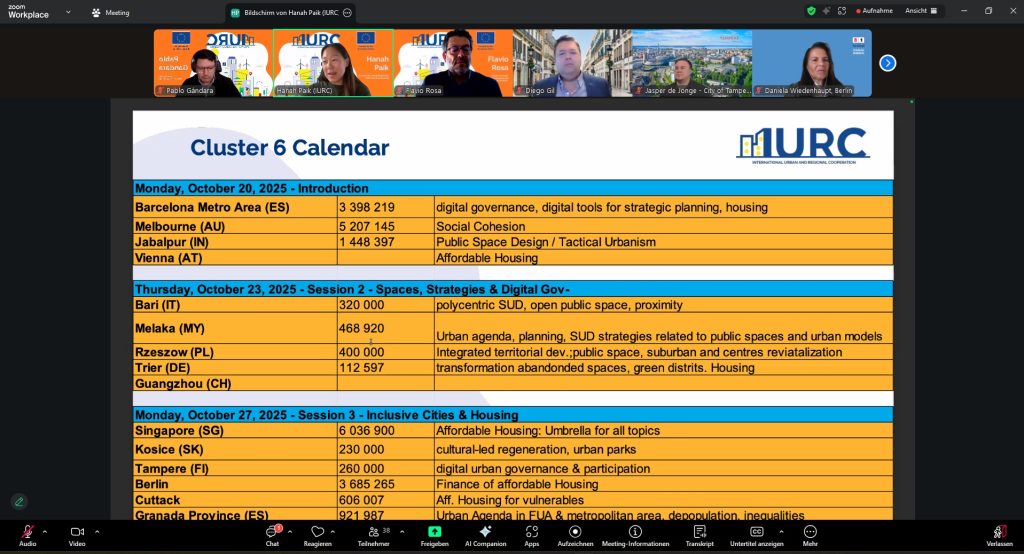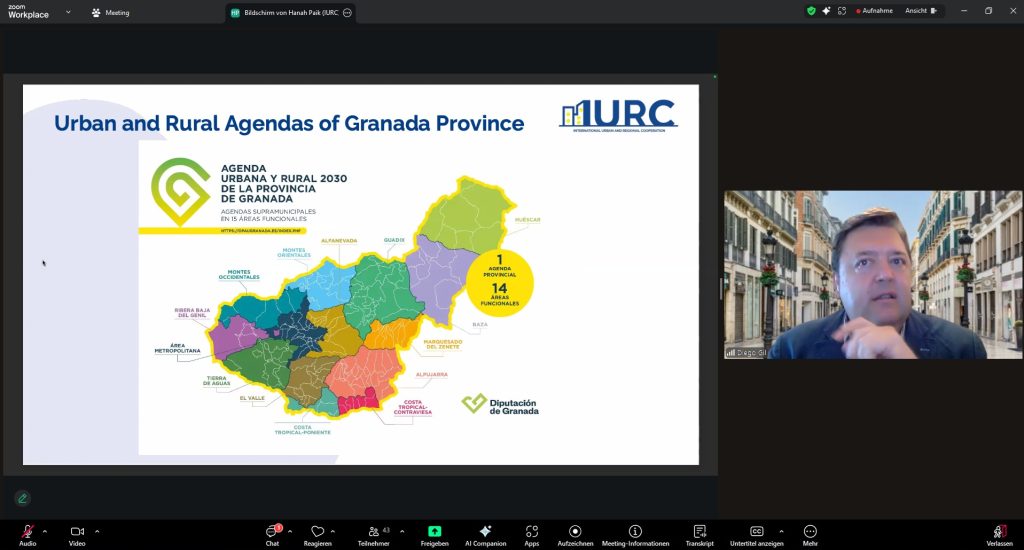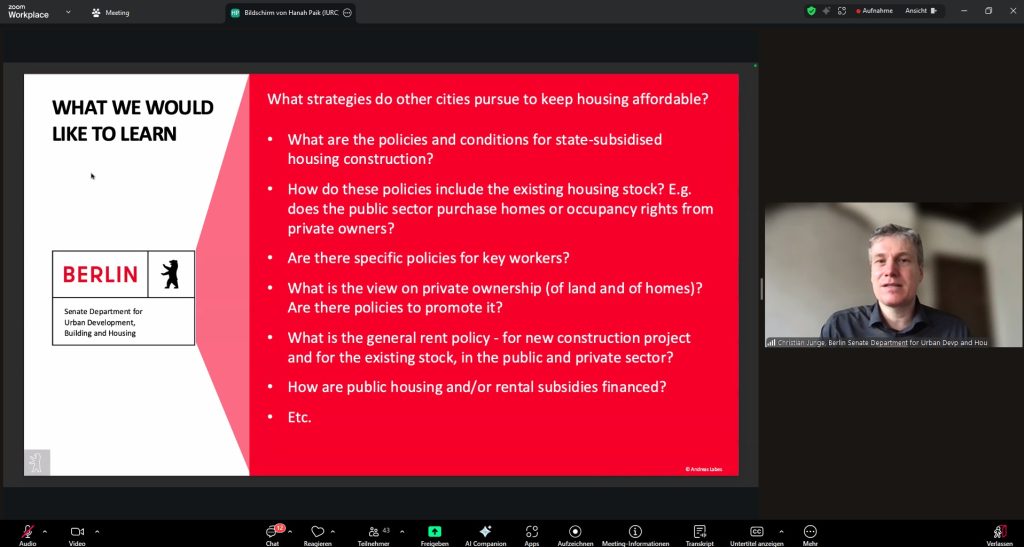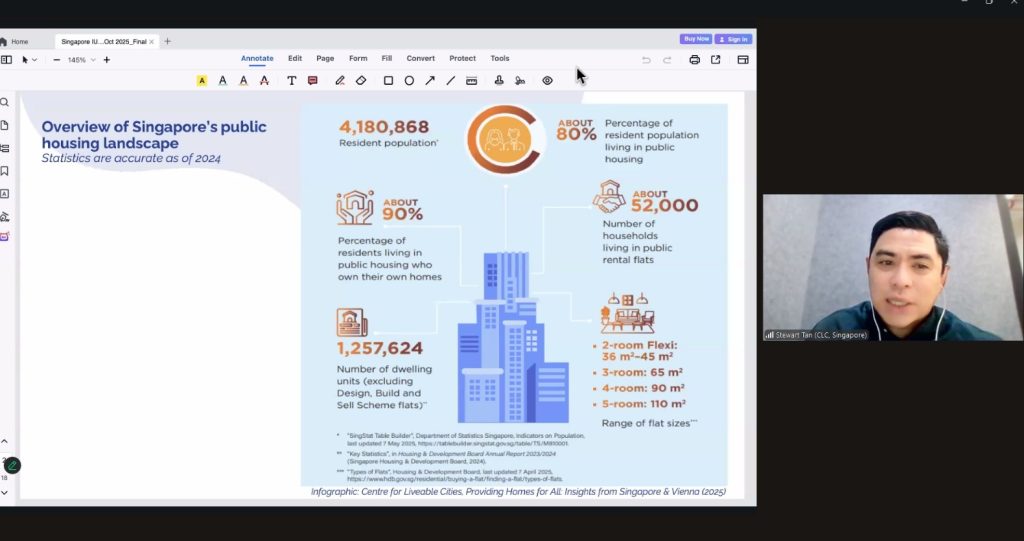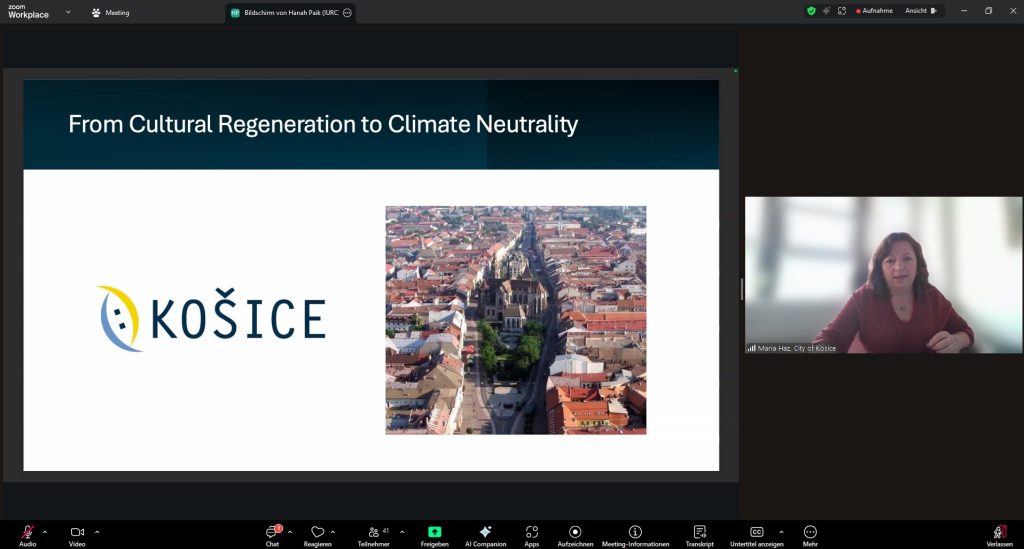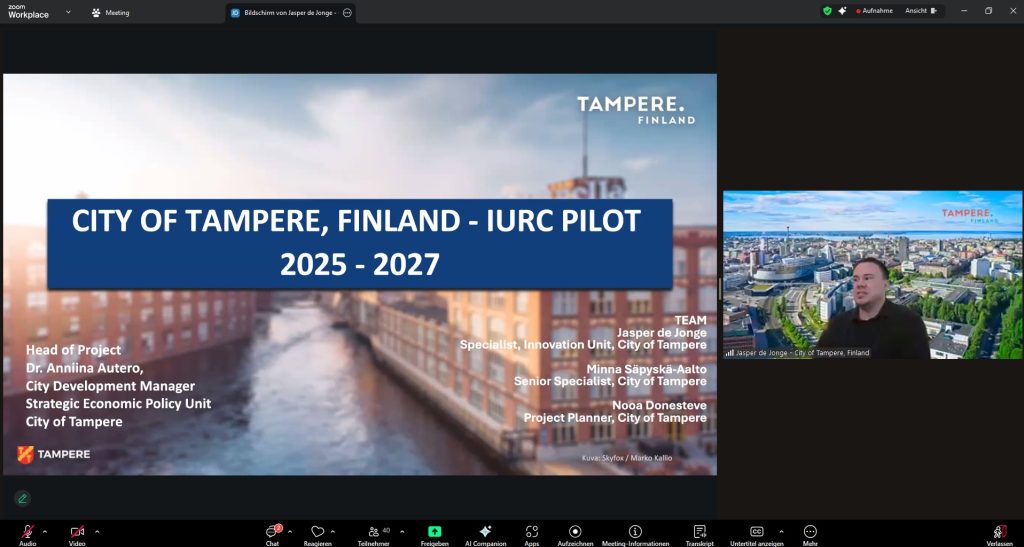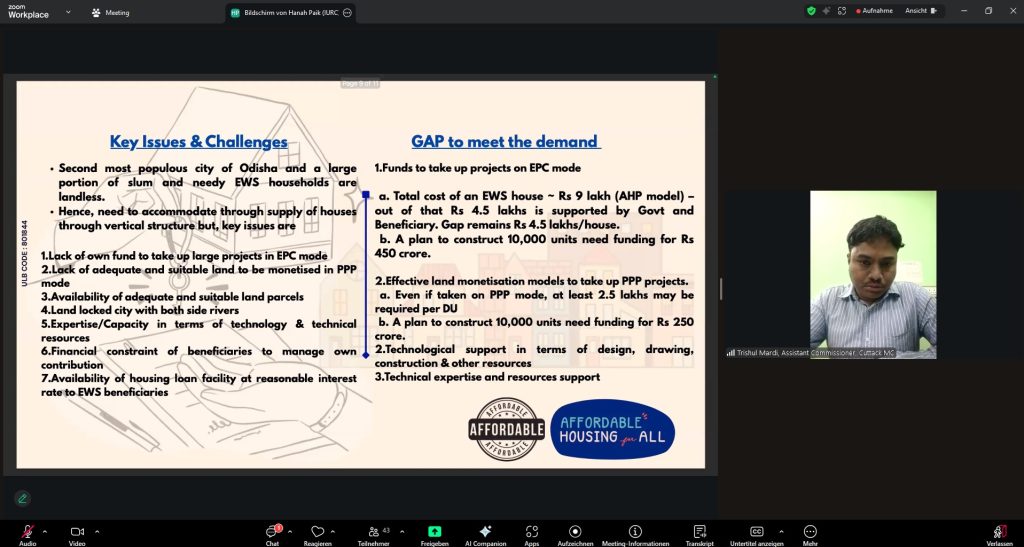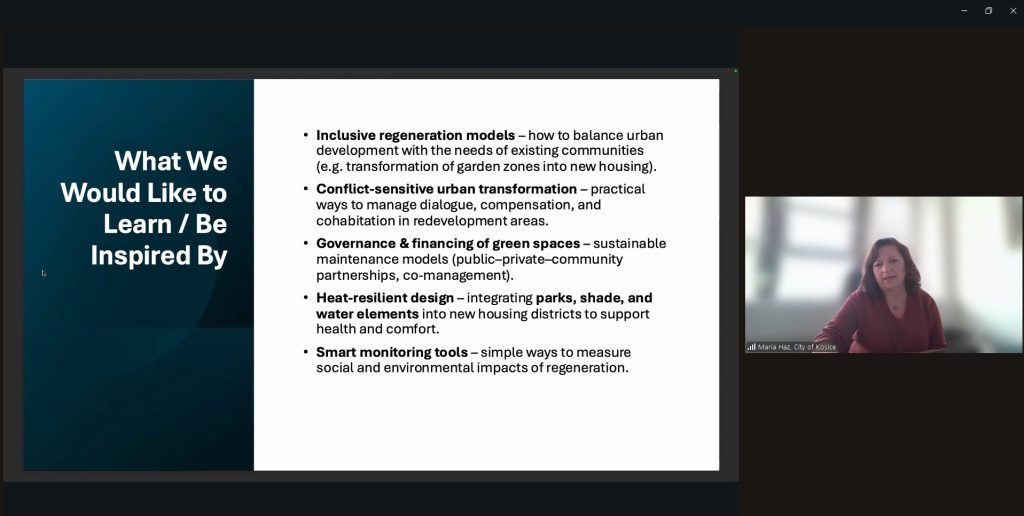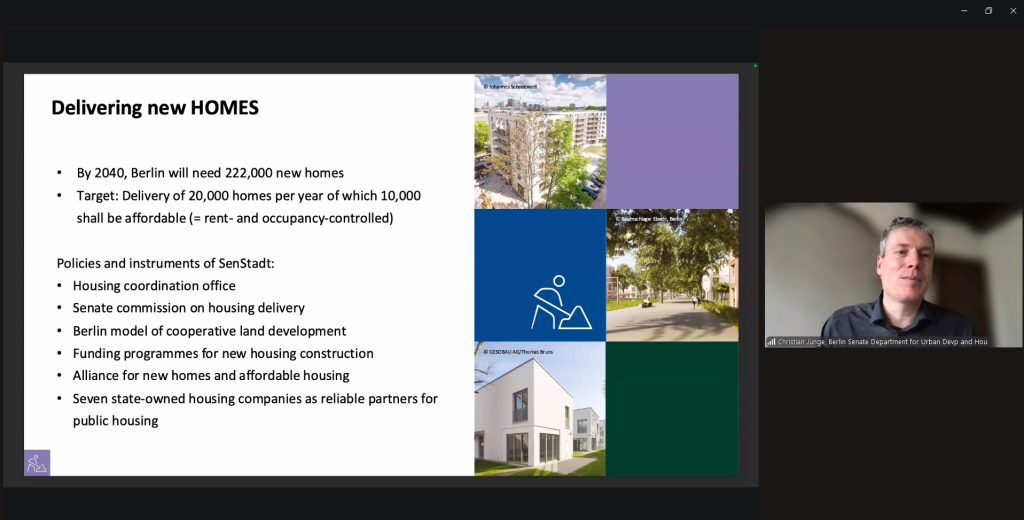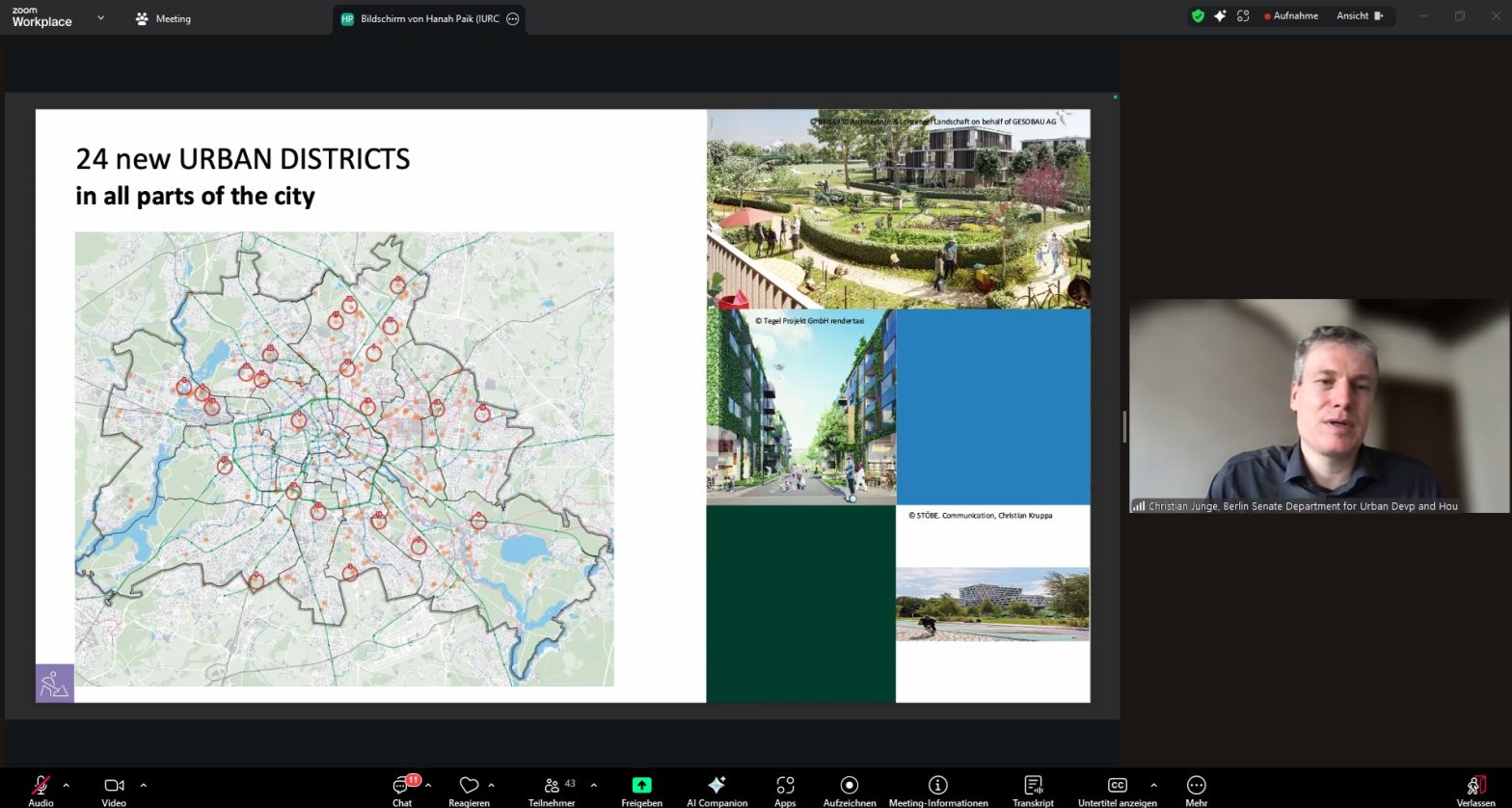On 27 October 2025, the International Urban and Regional Cooperation (IURC) Asia & Australasia programme convened its third deep dive session under the Urban Regeneration & Social Cohesion cluster, bringing together cities from Europe and Asia-Australasia to exchange approaches on inclusive neighbourhood development, affordable housing, and innovative governance. Moderated by Hannah Paig from Hong Kong, the session highlighted six diverse city perspectives, each tackling the challenges of regeneration and social cohesion in distinct urban contexts.
Košice (Slovakia) opened the session with an overview of its decade-long transformation from a culture-led city to one focused on climate action, innovation and participatory urban development. City representative Maria Haas showcased initiatives such as the Cultural Park, neighbourhood centres and the Citizen Experience & Innovation Hub, which are strengthening data-driven governance and community involvement. Košice is now advancing international collaborations to better balance new development with the needs of long-standing communities.
The discussion moved next to Singapore, where Stewart presented the city-state’s globally recognised public housing model. With 80% of residents living in public housing and 90% as owners, Singapore demonstrated how large-scale estate management, renewal programmes and strong regulatory frameworks contribute to social cohesion and affordability. Participants were particularly interested in the city’s monitoring systems and neighbourhood upgrading processes.
From Germany, Berlin shared its ambitious plans to address housing pressures, with a need for 220,000 new homes by 2040, including 10,000 affordable units annually. Christian outlined Berlin’s cooperative land development model, which obliges developers to contribute to social and technical infrastructure, alongside the city’s three-tier social housing system, rent controls and subsidy schemes. Berlin expressed strong interest in learning how other cities maintain affordable housing and finance public housing at scale.
Turning to India, Cuttack presented both its environmental and social challenges. Commissioner Trishul Mahdi noted the city’s limited green space—only 2–3 m² per capita—well below international recommendations. Cuttack is developing a long-term vision for an interconnected network of green zones to address air pollution and improve liveability. The city’s “Affordable Housing for All” scheme targets 37,000 families, with 4,500 current beneficiaries, and is seeking partnerships to expand solutions in land-constrained areas.
The session also highlighted experiences from Granada Province (Spain), represented by Diego, who described the region’s mix of urban and rural communities and its strengths in knowledge industries, agri-food, tourism and renewable energy. Granada showcased EU-aligned best practices, including rural-urban development agendas and regeneration projects such as the restoration of historic groves and the redevelopment of a former sugar factory into a GeoPark Visitor Centre focused on environmental education and sustainable tourism. The city also shared initiatives promoting local gastronomy and rural economic development, alongside growing international cooperation, including with Chinese cities.
Finally, Tampere (Finland) presented its people-driven, smart-city development model, anchored in a strong innovation and startup ecosystem. Jasper introduced Tampere’s IURC pilot project featuring a “multi-species AI resilience approach,” using an AI-generated house sparrow avatar to bring ecological perspectives into urban planning discussions—an innovative example of integrating technology, climate resilience and citizen engagement.
Across all presentations, cities emphasised the need for better monitoring, stronger citizen participation, and innovative housing and regeneration policies. The session concluded with an overview of the upcoming IURC Global Event in Barcelona, where more than 250 delegates will participate in thematic sessions, pilot-project meetings and study visits to advance collaboration across the network.
Disclaimer: This news has been elaborated with AI (ChatGPT) support.
